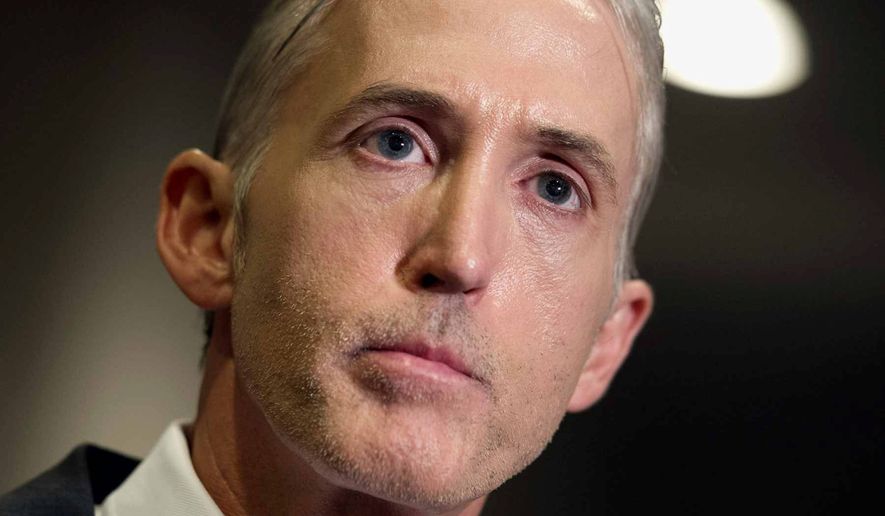The House Select Committee on Benghazi recently filed its final report into the Congressional Record last week, ending the investigation into the Sept. 11, 2012, terrorist attack that became intertwined with Hillary Clinton’s legacy at the State Department.
The report concluded that the Obama administration misled the public about the events surrounding the deadly assault on a U.S. compound in Libya and did little to cooperate with the panel, with committee member Rep. Mike Pompeo, President-elect Donald Trump’s choice to be the next CIA director, saying the group answered many questions but could not do so “completely.”
Rep. Trey Gowdy, South Carolina Republican and the panel chairman, said the report is the “final, definitive accounting” of what happened in Benghazi.
“The committee is proud to have been able to tell the story of the ingenuity and bravery displayed by our nation’s heroes in Benghazi, who banded together to save one another, when no other help was ever on the way,” he said. “On behalf of the committee, we thank all the witnesses who appeared and helped us in providing the definitive account.”
In putting together the approximately 800-page report, the committee interviewed more than 100 witnesses, including more than 80 who hadn’t faced questions from Congress before.
In a separate statement within the report, Mr. Pompeo, Kansas Republican, and Rep. Jim Jordan, Ohio Republican, said they found a “tragic failure of leadership,” both in the run-up to and on the night of the attack.
They also found “an administration that, so blinded by politics and its desire to win an election, disregarded a basic duty of government: Tell people the truth.”
“Although we answered many questions, we could not do so completely,” they said.
The two congressmen said officials at the State Department, including Mrs. Clinton, who was secretary of state at the time, learned almost in real time that the assault was a terrorist attack, but with an election coming up chose first to publicly blame it on a protest over a U.S.-produced, anti-Muslim video.
The attack claimed the lives of four Americans: Ambassador J. Christopher Stevens, State Department employee Sean Smith, and security contractors Glen Doherty and Tyrone Woods.
Perhaps most notably, the panel prodded Mrs. Clinton into acknowledging the existence of her secret email server in March 2015 — an issue that haunted her presidential campaign.
Meanwhile, Rep. Elijah E. Cummings of Maryland, the ranking Democrat on the panel, said history will view the select committee as a prime example of how not to conduct a congressional investigation, saying it goes down as “one of the longest, least productive, and most partisan taxpayer-funded investigations in history.”
“Republicans voted on this partisan report five months ago, but delayed filing it and completing the committee until after the election,” Mr. Cummings said. “Republicans promised a process that was fair and bipartisan, but the American people got exactly the opposite.”
Mr. Gowdy and congressional Republicans consistently defended the investigation, saying the Obama administration rebuffed their requests for information and that it was worth examining the run-up, the event itself, and the aftermath in order to discover new ground missed by other congressional inquiries.
Democrats had approved their own report in June saying that the evidence obtained by the select committee confirmed core findings from other investigations, while allowing that the panel acquired additional contextual details about the attack.
They also said the exercise was a thinly-veiled attempt at undermining Mrs. Clinton’s candidacy, pointing to House Majority Leader Kevin McCarthy’s seeming to link the committee to Mrs. Clinton’s fading poll numbers in a Fox News appearance last year.
• David Sherfinski can be reached at dsherfinski@washingtontimes.com.




Please read our comment policy before commenting.